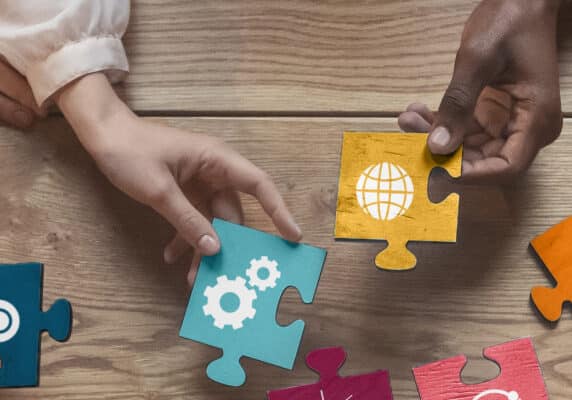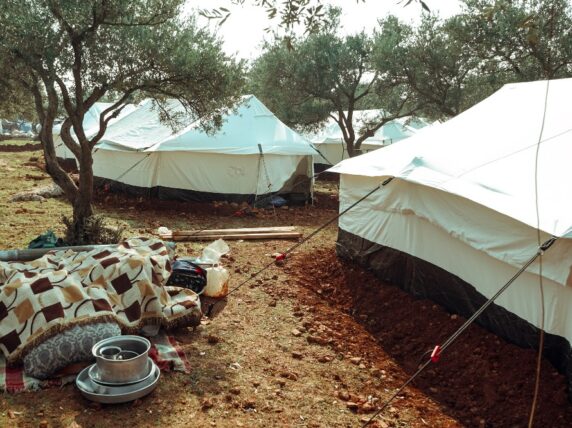5 ways to combat the Covid-19 crisis in the global south
As countries with the most advanced healthcare systems and strongest economies struggle to deal with Covid-19, alarm is growing as the pandemic spreads in countries without the infrastructure and resources to cope.
Millions in low and middle-income countries face disaster
Over 55% of the world’s population now live in cities. There is a real risk of a fast and deadly spread of the highly infectious Covid-19 in cities in the global south with high population density, poor access to water and sanitation, and high levels of poverty.
People in poorer countries already struggle to get enough to eat, stay healthy and earn enough money to get by. These countries have limited healthcare systems that are ill-equipped to support their populations. The Central African Republic has three ventilators. Not one per 100,000 or even per 1,000,000. Just three.
While coronavirus doesn’t discriminate in who it attacks, our abilities to deal with it differ. An Indian doctor on Twitter said that social distancing is a privilege: you need running water, space in your house, and the means to afford not going out to earn money. Many Indians, he added, don’t. Neither do people living in refugee camps in the Middle East or slums in Africa.
As we in Europe and the US are finding, it’s not just the immediate health impacts that are crippling. The strongest economies in the world have been sent reeling by the disease and have enacted financial bailout packages worth trillions.
These kinds of financial measures won’t be possible in countries with smaller economies, often with high levels of debt. This means the world’s most vulnerable will be hit the hardest by this crisis.
Subscribe to our newsletter
Our weekly email newsletter, Network News, is an indispensable weekly digest of the latest updates on funding, jobs, resources, news and learning opportunities in the international development sector.
Get Network NewsWhat we need to prevent Covid-19 devastating the global south
1. A comprehensive response to the global health crisis
We must maintain basic essential services in developing countries to prevent greater loss of lives. We have a small window of time to learn from the ongoing fight against Covid-19 here in the UK and use them to provide meaningful support to countries with fragile health systems to prevent widespread devastation. All governments must help developing countries to increase investment in health systems, dramatically scale-up numbers of health workers, and sustain support to existing health and health-related programmes, such as hand washing stations, clean water, sanitation and nutrition.
2. A fast, coordinated humanitarian response
The crisis will move from a health crisis to a humanitarian one. This emergency requires global leadership on a practical and political level. As an innovative and experienced humanitarian donor, the UK government has a particularly important leadership role to play working with the UN, international NGOs, governments and civil society to coordinate a swift global humanitarian response to assist and protect populations most at risk. Travel restrictions and social distancing measures present huge logistical and operational barriers to providing at-risk populations with the right kind of support. Organisations delivering humanitarian support need to be granted exemptions from lockdown scenarios, travel and financial restrictions, and closed borders.
3. More money, quickly
No single nation can defeat this virus alone. Countries and donors must provide more funding to enable a successful global response to the pandemic. To save lives at home and overseas, Covid-19 must be contained and then eradicated everywhere. New funds are urgently needed by civil society, government and multilateral organisations (UN, WHO) with effective operations in the most vulnerable countries. Where governments have already provided funds to development partners, these should be flexibly reallocated to allow an on-the-ground response to Covid-19 with minimal additional processes.
4. An empowered civil society
All development actors, governments, bilateral donors and multilateral institutions, have a critical role to play in tackling this crisis. Civil society organisations at home and abroad are fundamental to an effective response, but many are struggling to retain staff and keep afloat. The UK government must provide the funds to bolster domestic charities and international NGOs at the frontline to continue tackling the human, social and economic impacts of the crisis. Civil society must also be protected from political manoeuvres that use the crisis as a smokescreen to curtail their activities.
5. A vision and plan to prevent this happening again
We are just beginning to understand the pandemic’s wider economic and social devastation. Bankrupt businesses, job losses, a looming global recession, declining tax revenues to name but a few. We must utilise the Sustainable Development Goals and consider how we as a global community prevent this from happening again. The only way to avoid more pandemics is to build healthcare systems, tackle poverty and malnutrition, and reduce inequality. A good start would be dropping the debt that the poorest countries owed to other governments and multilateral institutions.
Internationalist values
This is an unprecedented and troubling time for much of the planet’s population. Out of this tragedy, I hope a stronger realisation will emerge that we are all interconnected, wherever we live, and that we all share the same worries about keeping our families safe. The idea that a country can isolate itself from the world should now be put to rest.
A new set of internationalist values and institutions were born out of the two World Wars, designed to ensure these terrible events were not repeated. This is another one of those moments. The only way out of this global pandemic, and the only way to prevent the next one, is for governments and people to work together in empathy and solidarity.
How is Bond helping?
We’re bringing the UK’s NGO sector together to advocate for a swift and effective global response to Covid-19, focused on the world’s most vulnerable people. We’re working to ensure that the global response also protects civil society space and provides NGOs the financial support to continue delivering their life-changing work. Find out more.
Category
News & ViewsThemes
Funding



